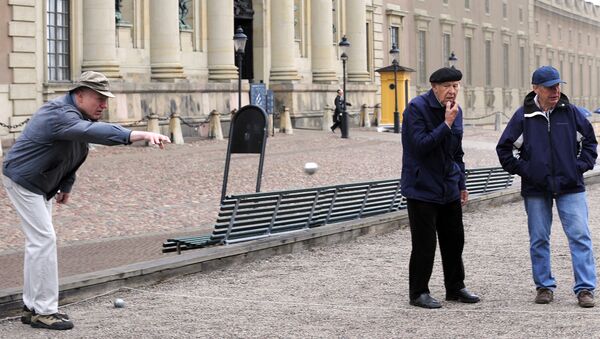At the beginning of the coronavirus pandemic, when isolation was recommended for the elderly, the well-being of Swedes between 65 and 71 years increased compared with the previous five years, a new study from the University of Gothenburg has found.
Perhaps surprisingly, those who avoided social contacts felt better than those who did not.
The researchers collected data from 1,071 elderly people during one week at the end of March and the beginning of April. They used criteria such as life satisfaction, loneliness, financial satisfaction and self-estimated health, which are seen as integral aspects of well-being.
Self-estimated health was the factor that most stood out compared with previous measurements, as was financial satisfaction.
“The study shows a gradual decline in self-assessed health between 2015 and 2019, but an increase in this year's measurements. This means that the participants estimated their health at the same level as five years ago,” researcher Isabelle Hansson said, as quoted by the medical newspaper Läkartidningen.
Moreover, people over 70 were less concerned about their finances and avoided social contacts to a greater extent than those between 65 and 69. By contrast, no differences between people above and below 70 in their concerns about their own or their relatives' health were found.
“It is important to point out that those over 70 are not at home and afraid. They actually worry less and they actually do more to avoid getting infected. It's a perfect combination,” researcher Pär Bjälkebring said.
However, the researchers emphasised that further studies are needed to understand the relationships.
“We will continue to collect data. The pandemic is not over, so we do not know what the long-term effects will be. Next year it may return to normal or we will see a major decline in self-esteemed health. Maybe we get some kind of emotional fatigue, when people don't feel worried or start feeling bad after a long time in isolation," says researcher Isabelle Hansson.
In its maverick approach to COVID-19, Sweden became one of the few nations to skip any lockdowns whatsoever. Despite extra precautions taken to protect the elderly, especially at retirement homes and nursing homes, over 90 percent of Sweden's fatalities were aged 60 and over. This sparked bitter criticism, not least from medical professionals, who suggested that the authorities “wilfully abandoned” elderly Swedes.
Due to its standalone approach, Sweden has had close to 74,000 confirmed coronavirus cases and about 5,500 deaths, more than its neighbours combined.




